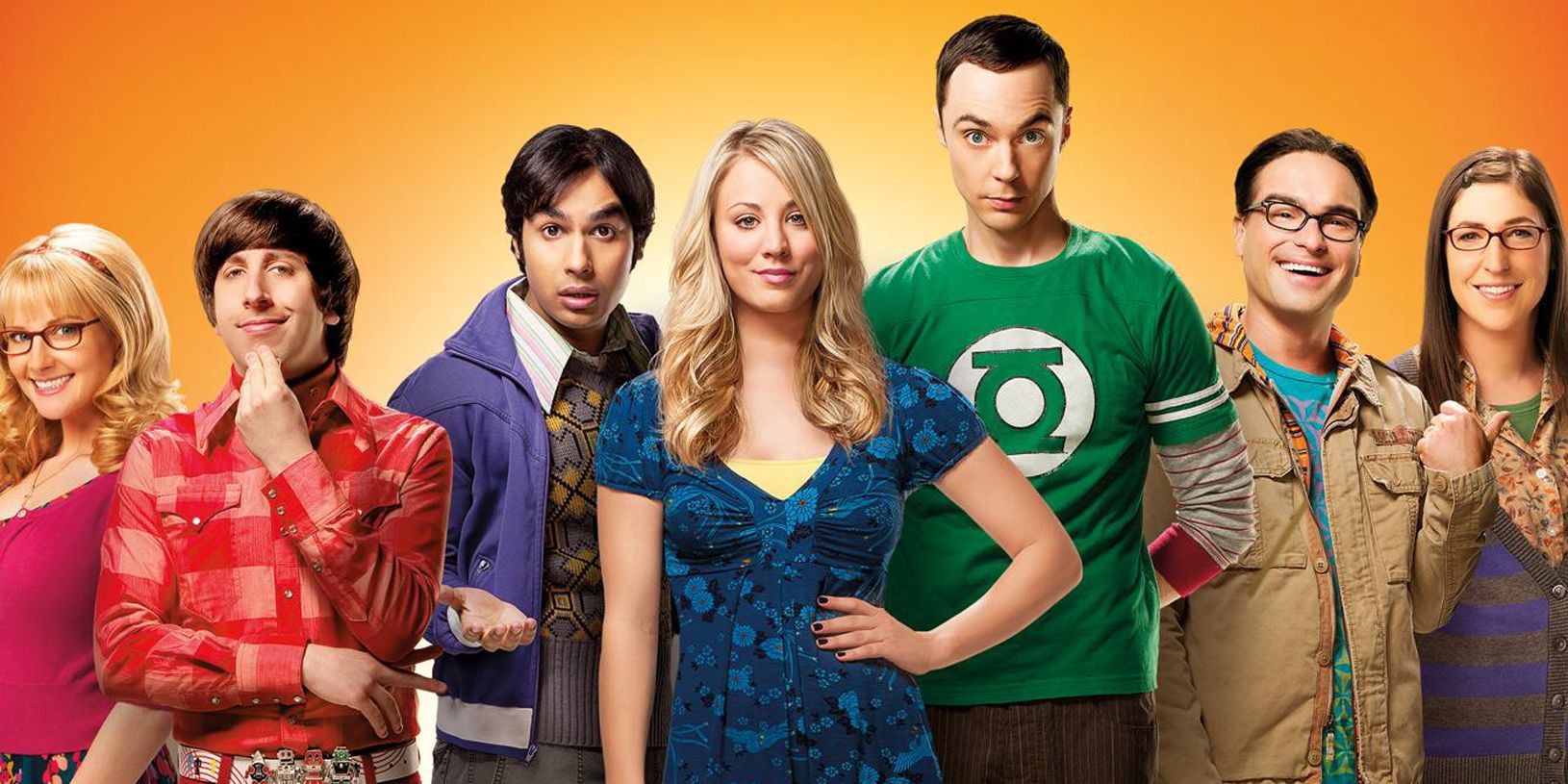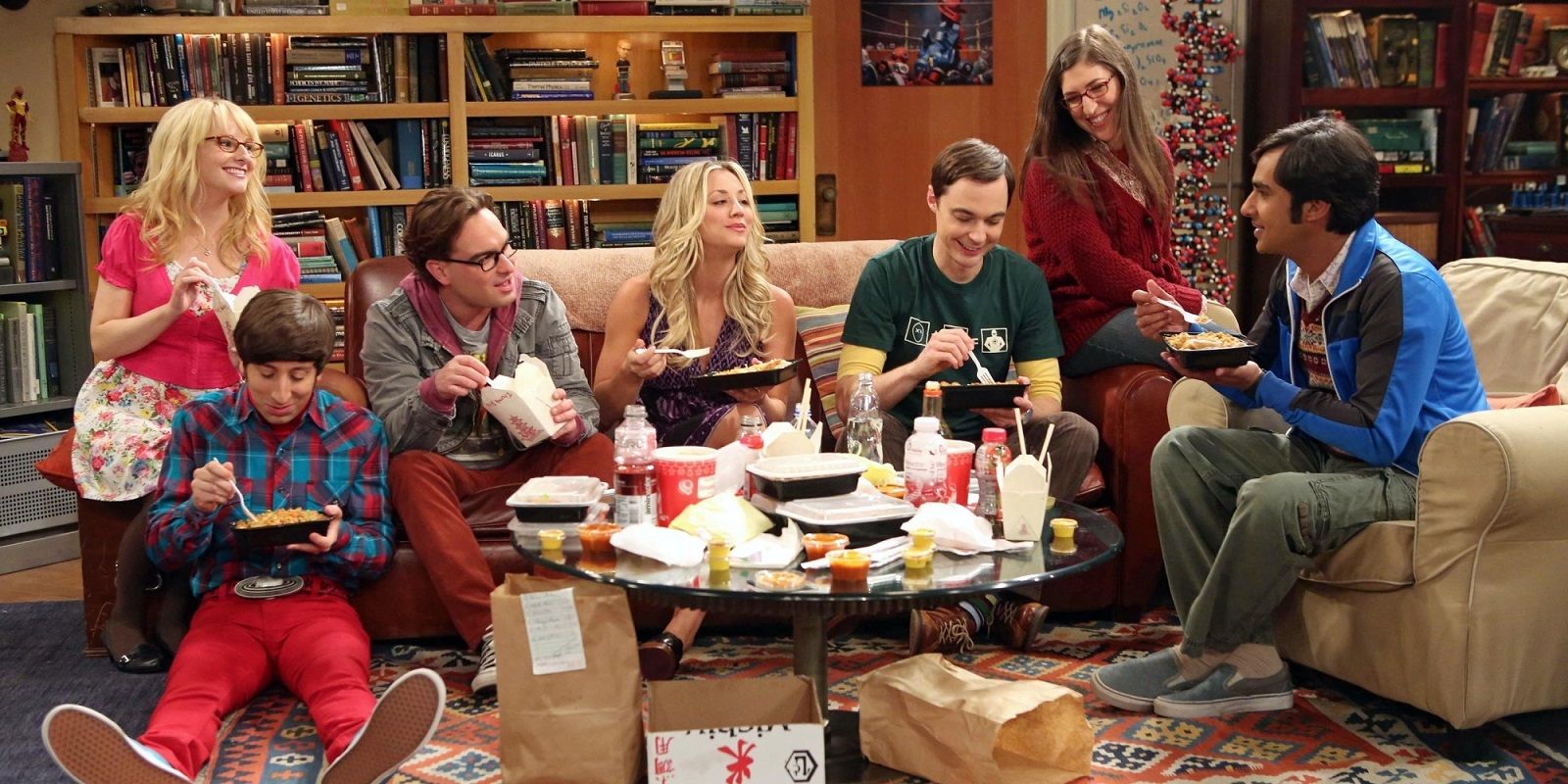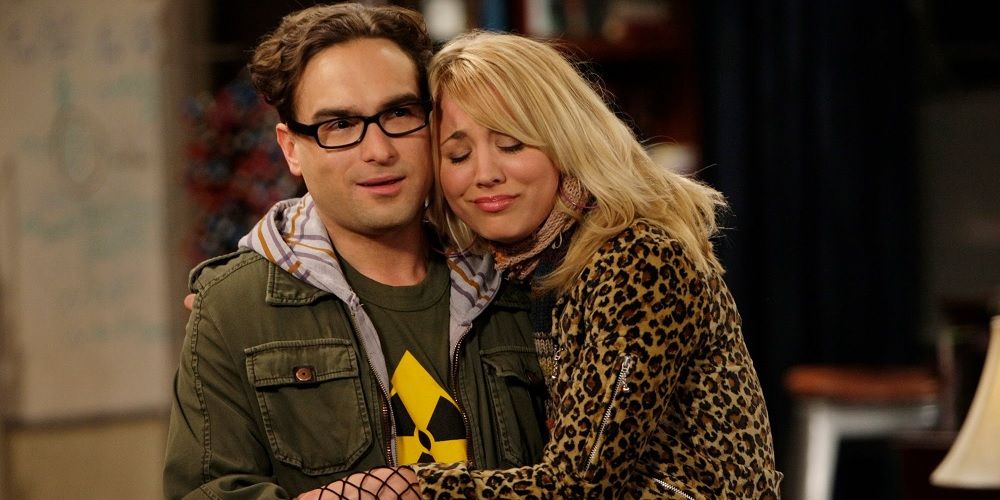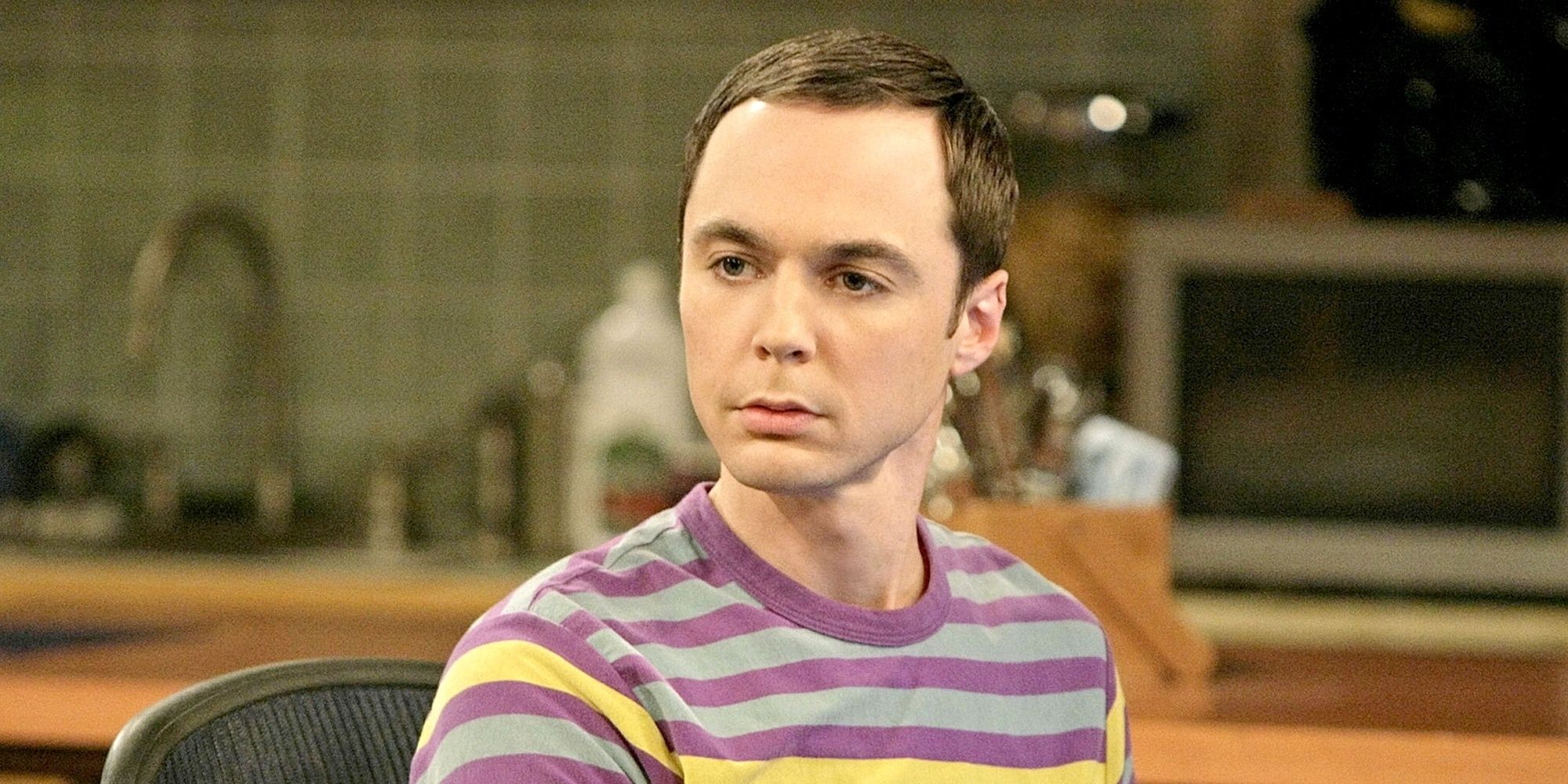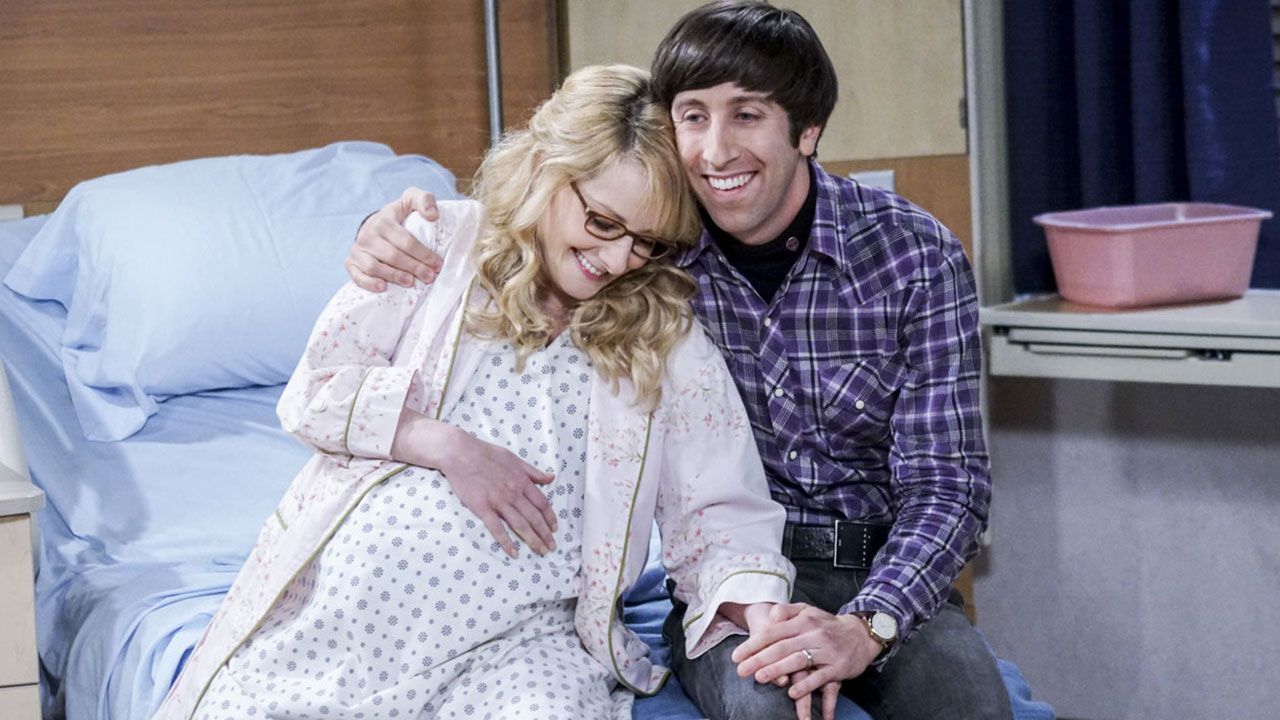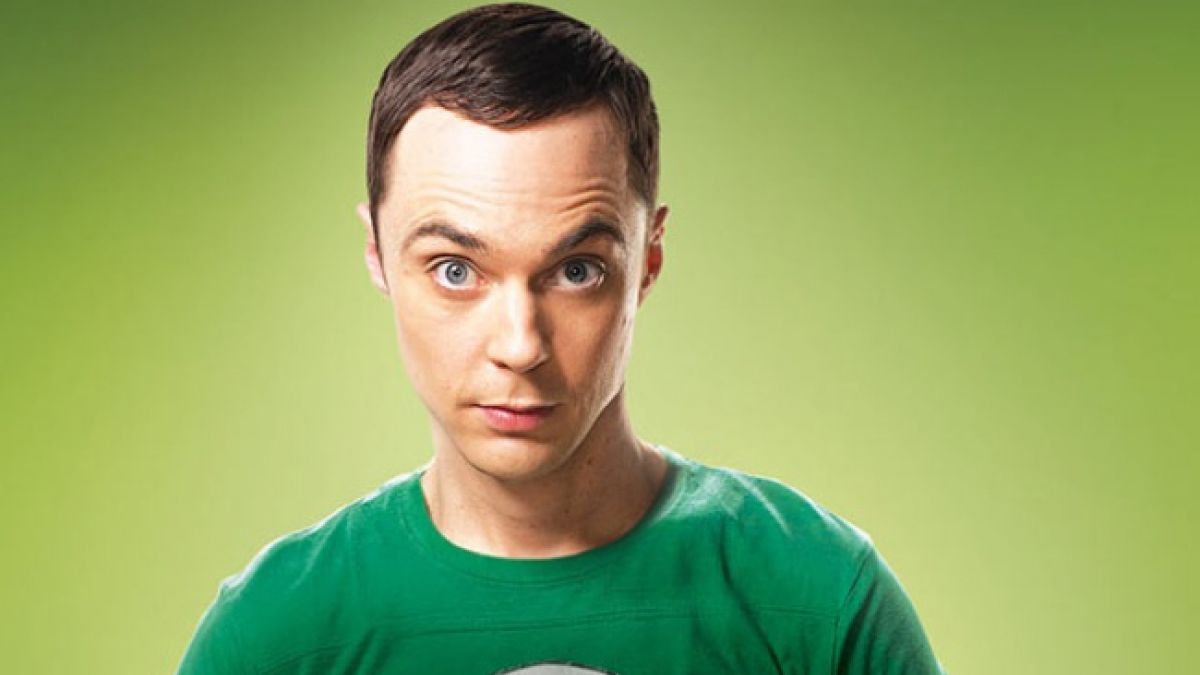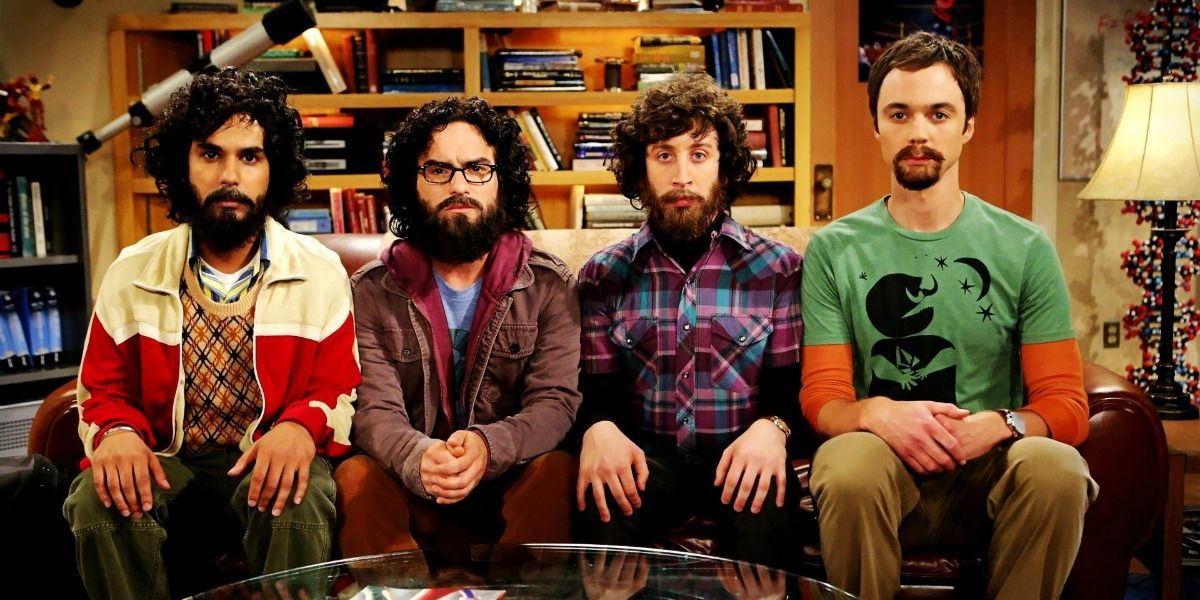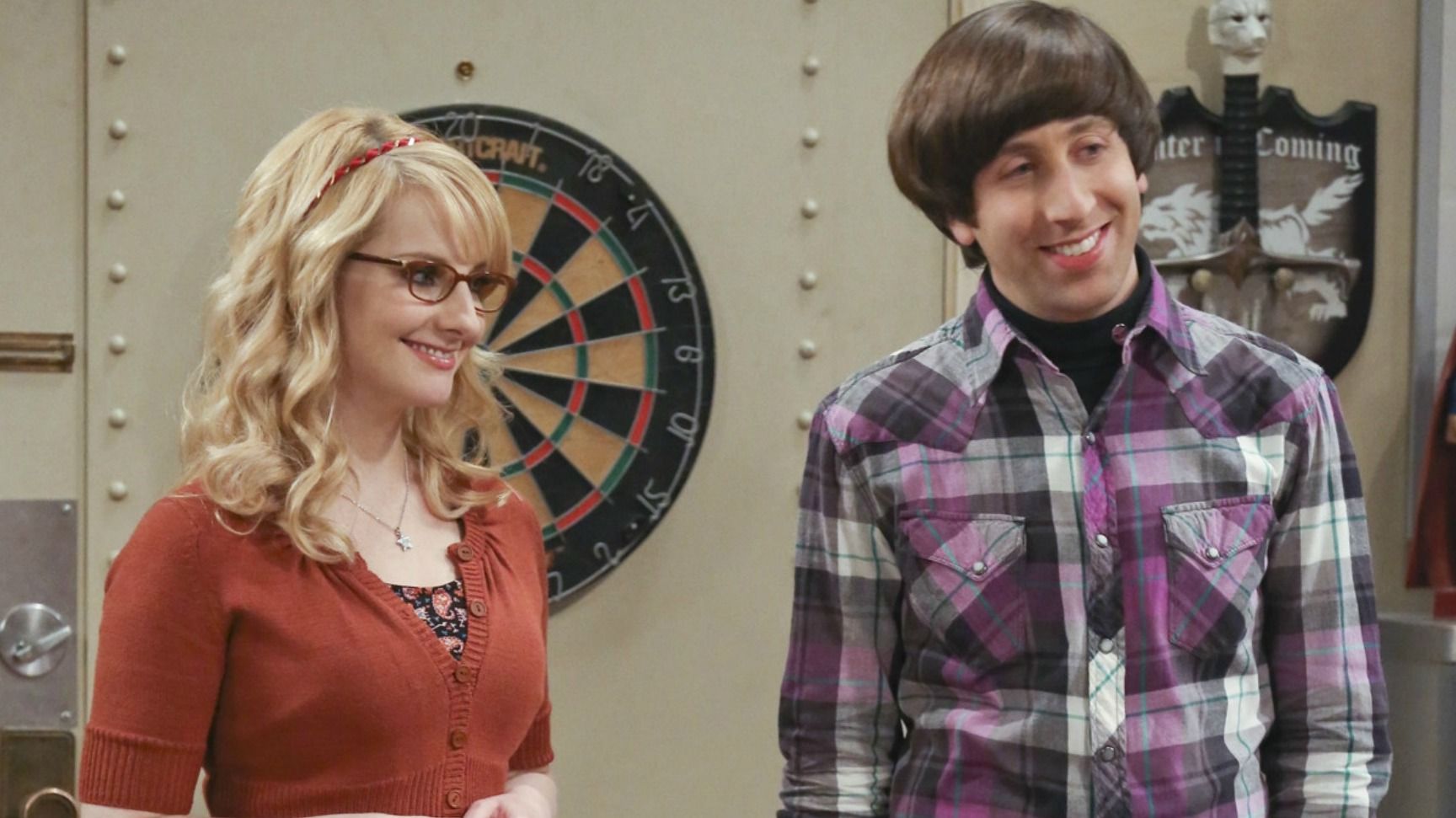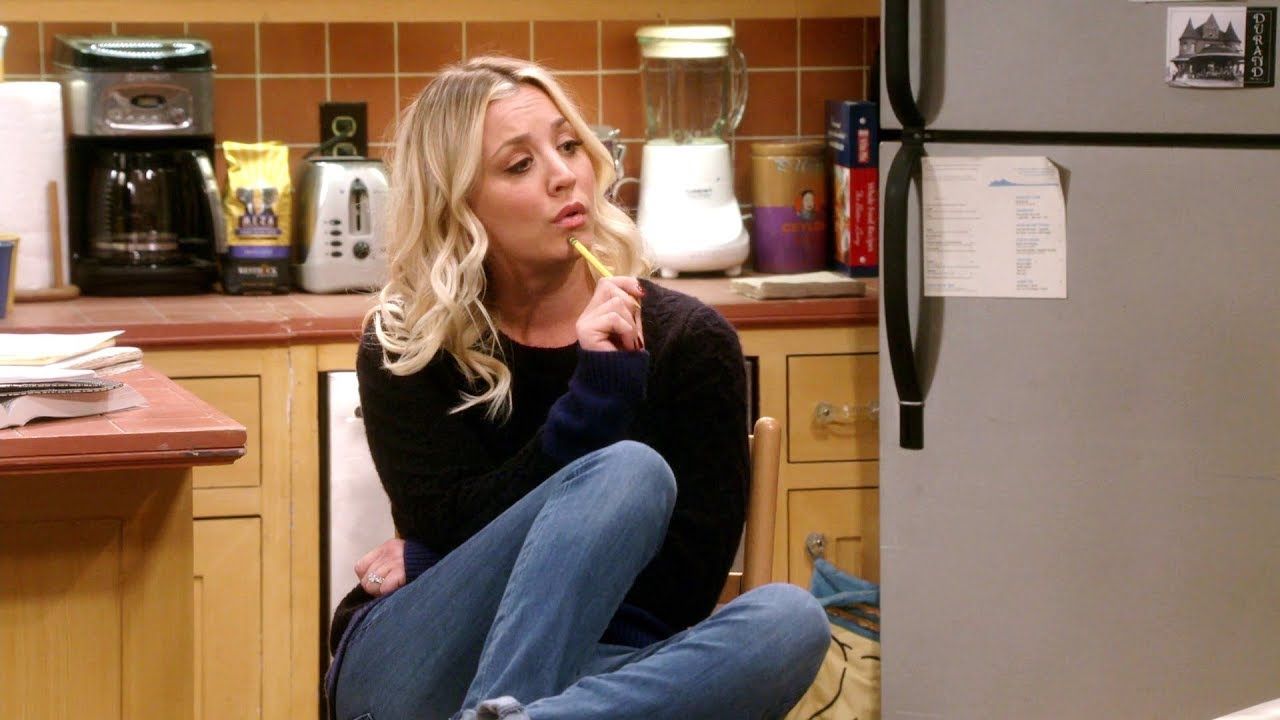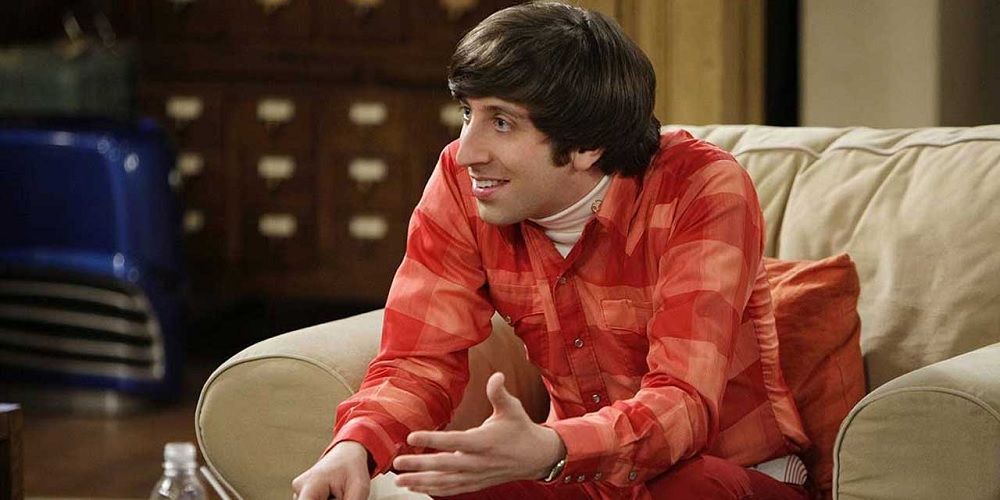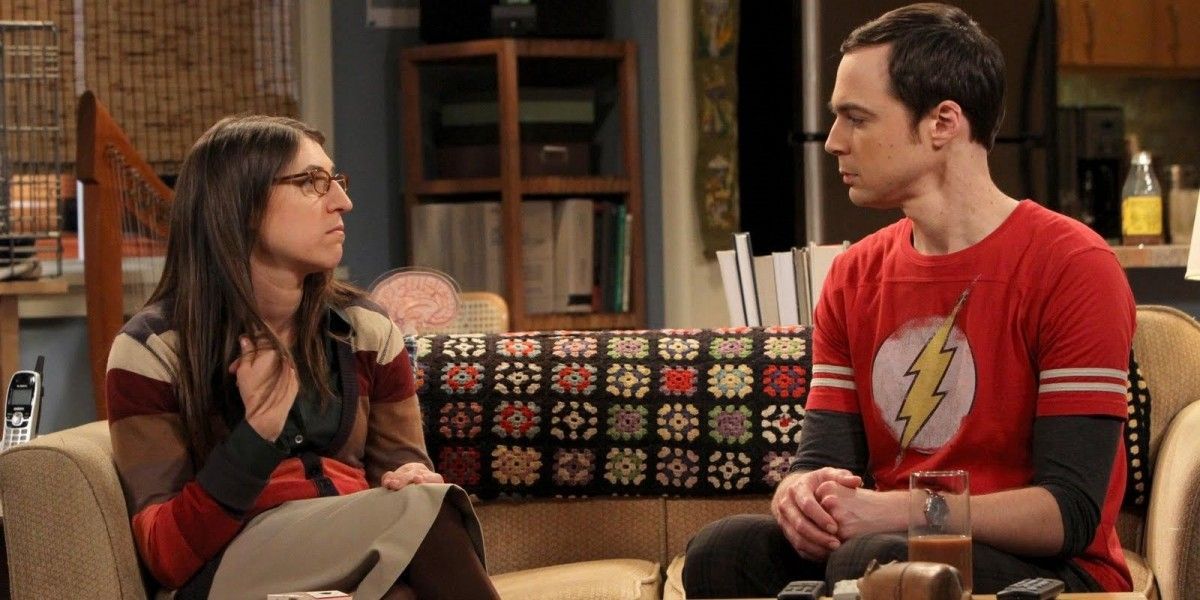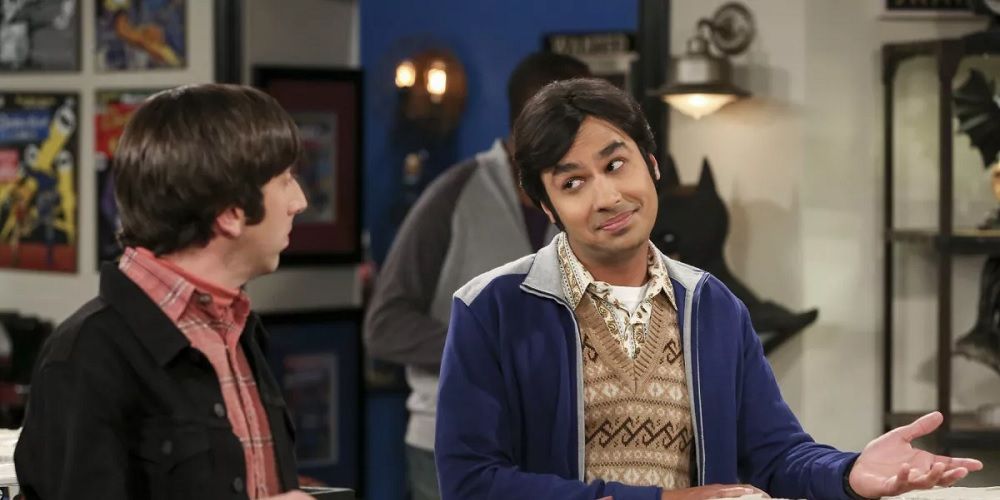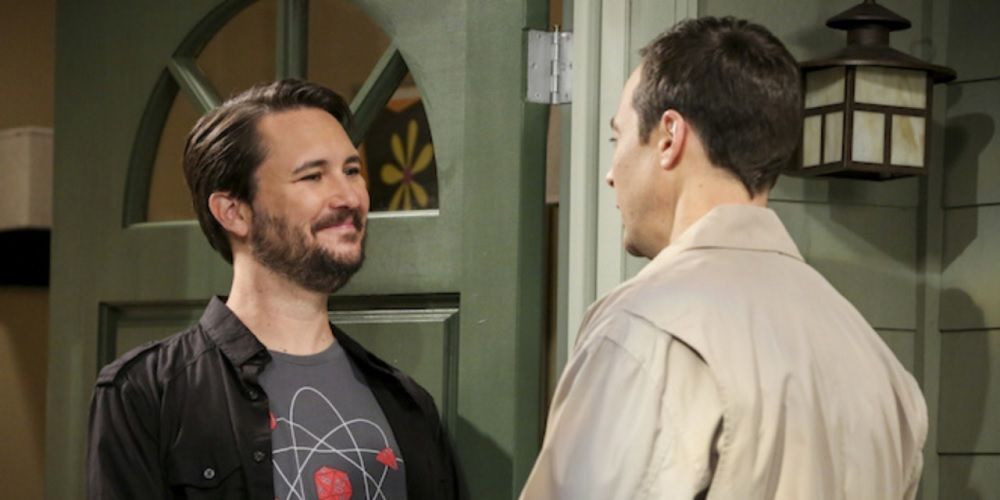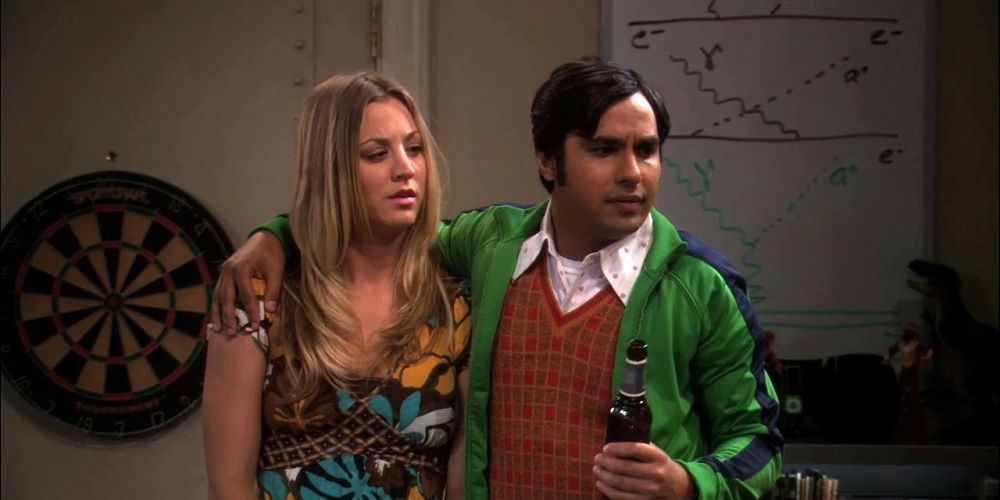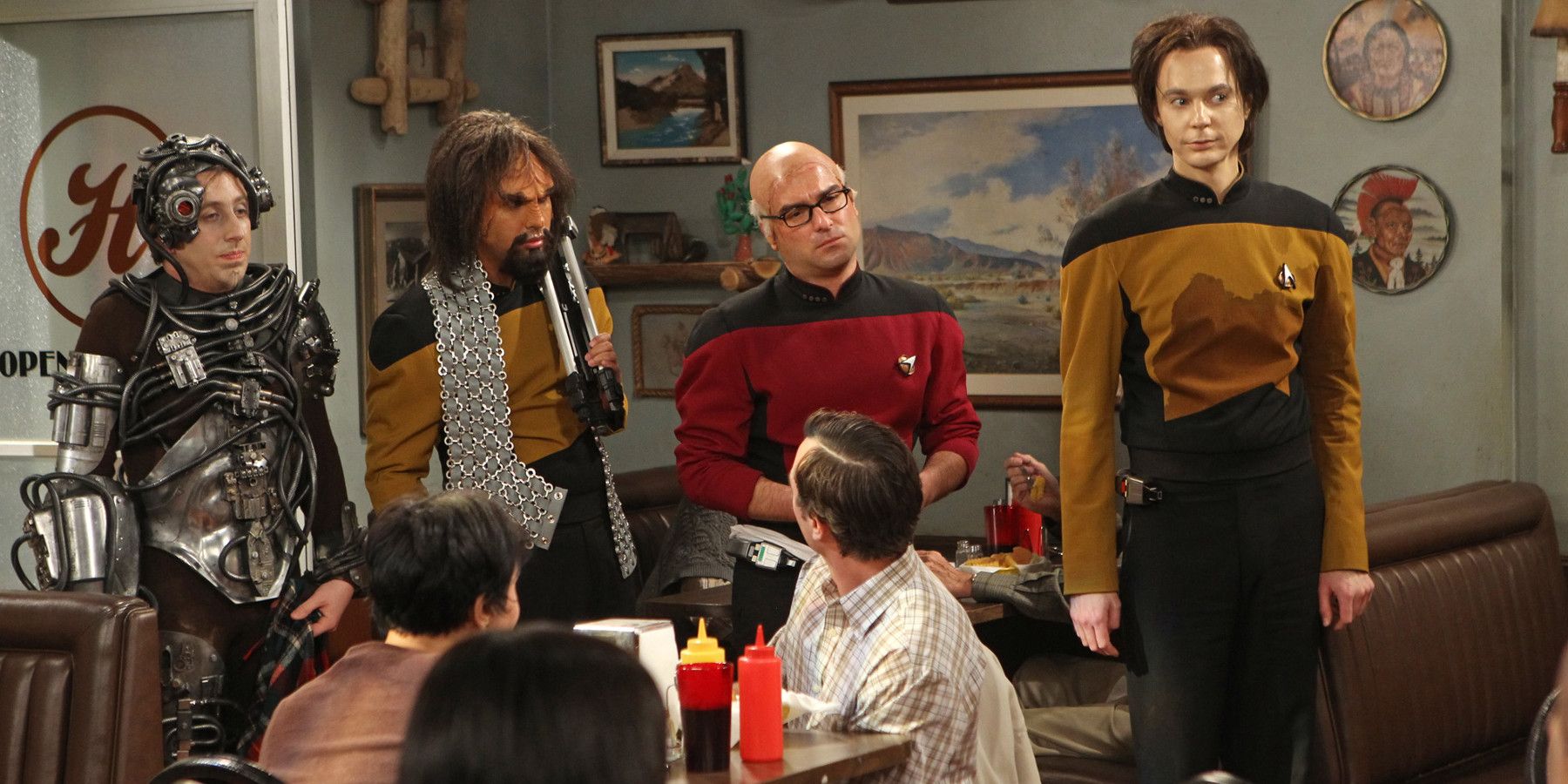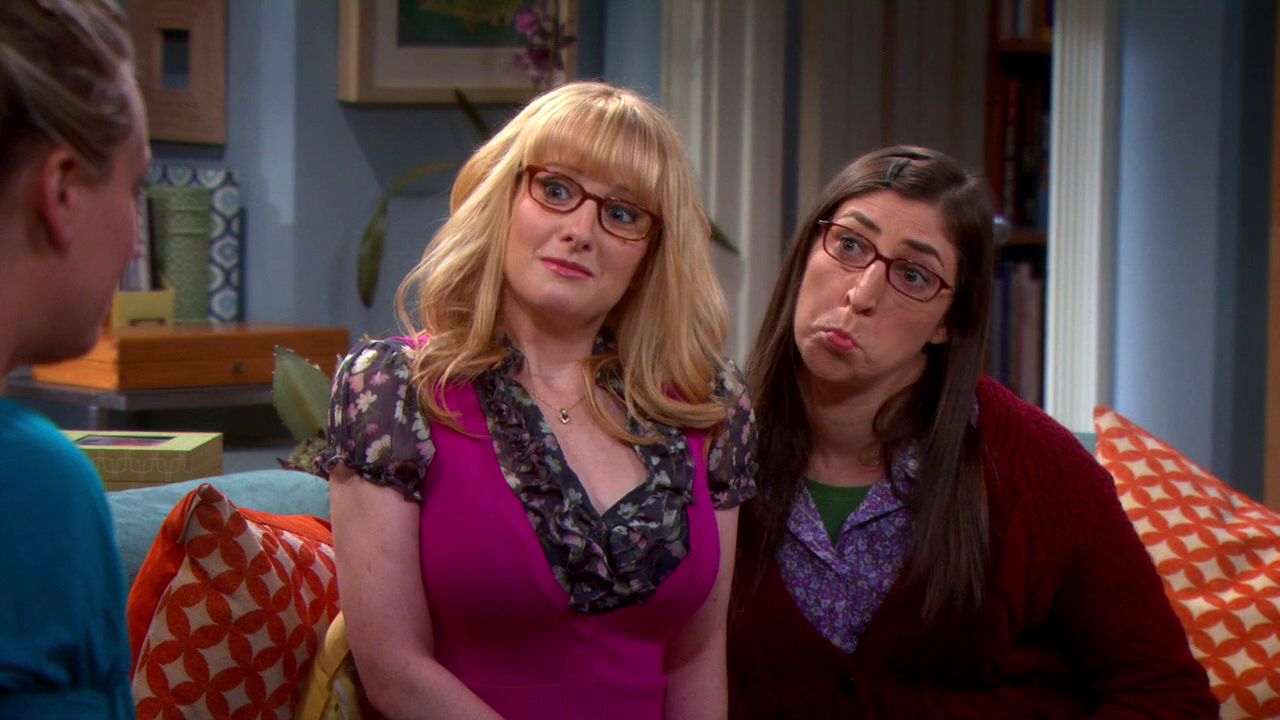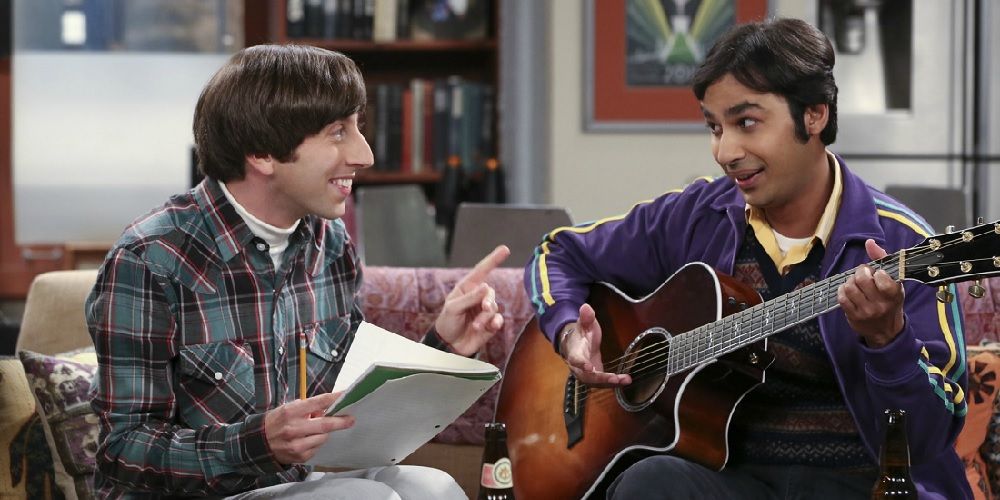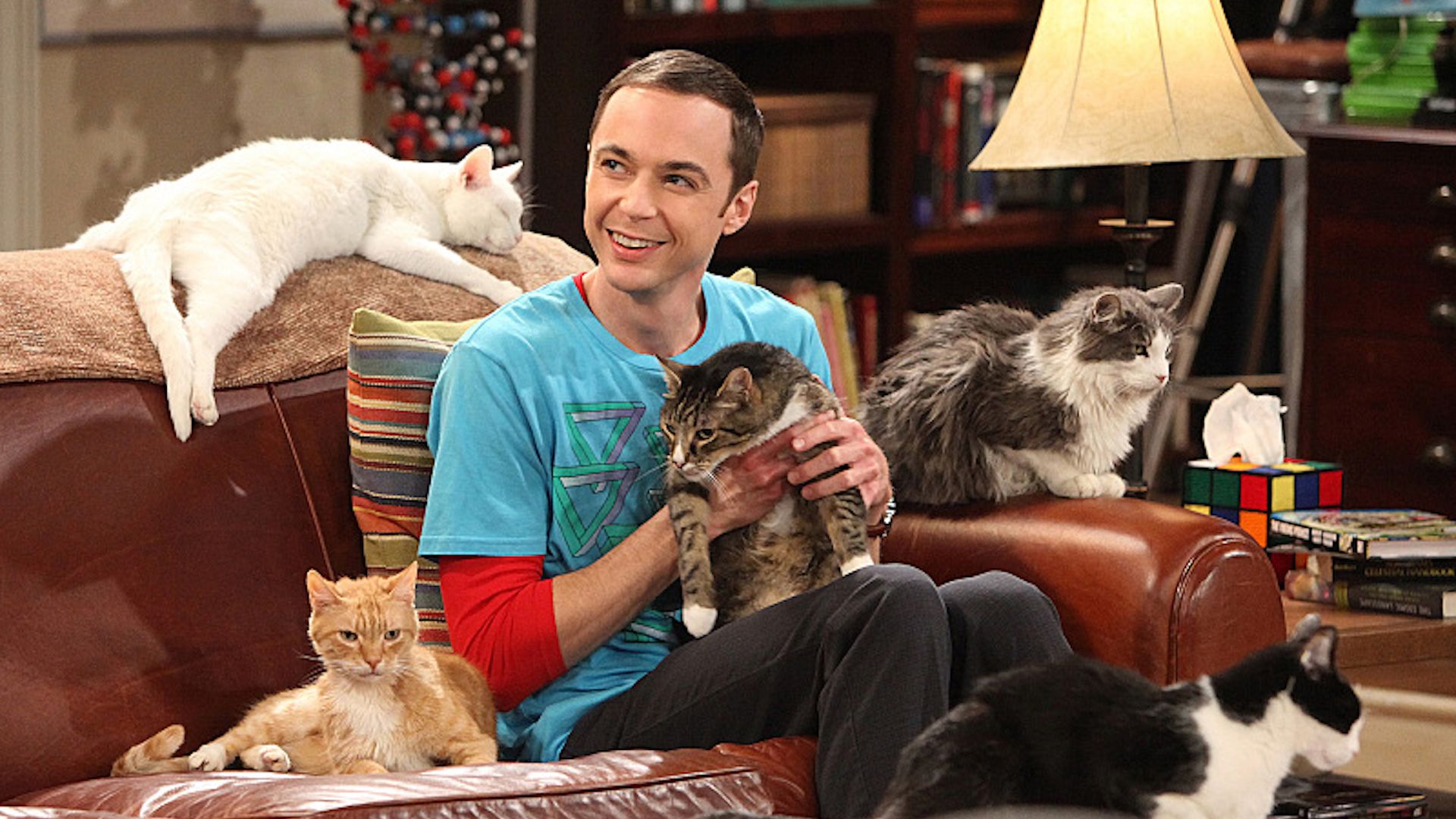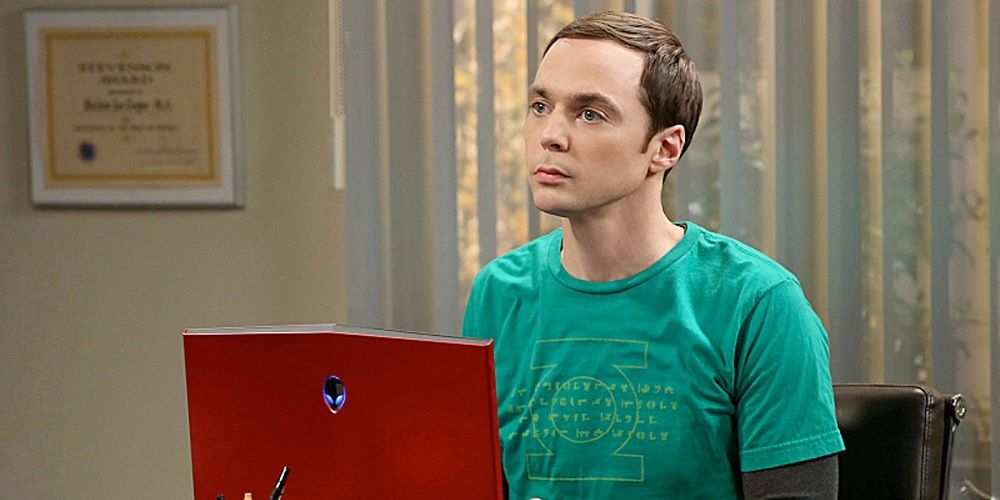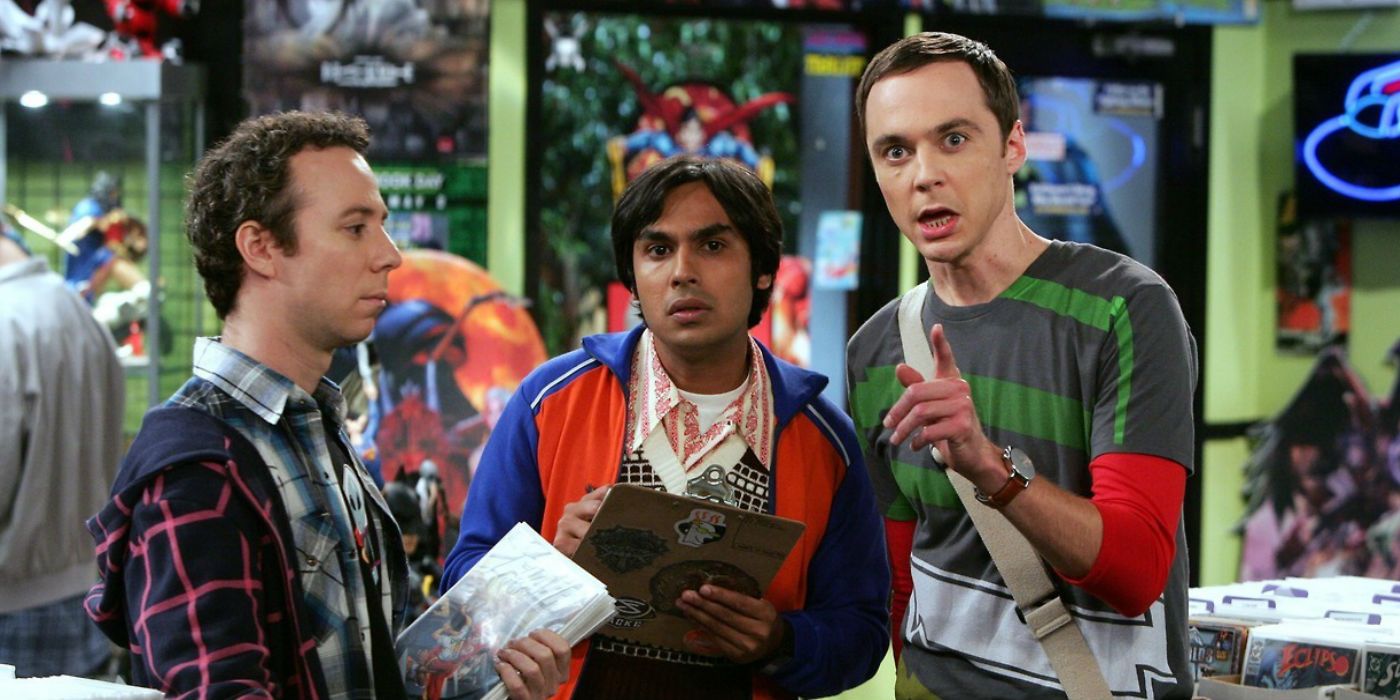When the absurdly successful CBS sitcom The Big Bang Theory finally wraps its run in the spring of 2019, the series will have aired twelve long seasons, totaling a likely number of 279 episodes. It's safe to say that its place in the canon of the best modern sitcoms is more than cemented at this point.
However, there's no denying that the quality of the show has risen and fallen over the years, coming in and out of critical favor along the way. Once a darling of the awards season, particularly for Jim Parsons’ portrayal of the iconic Sheldon Cooper, the series hasn't been taken seriously by critics for quite some time now.
However, despite changes in critical reception, the series has proven itself to have quite a stronghold over its target audience, routinely drawing nearly twenty million viewers per episode. No matter how quirky or bizarre the central plot of any given episode may be, fans everywhere tune in to see what happens next in the lives of these nerds they have grown so fond of.
Yet even the most passionate of fans are prone to making mistakes, whether due to misinterpretation or lapses in memory. It's a pretty long show, after all.
With that said, here are the 20 Things About The Big Bang Theory Everyone Gets Wrong.
It's not the longest running sitcom ever
Impressive as it may be to reach twelve seasons and a whopping 279 episode tally, especially in the modern day and age of shows getting canceled summarily after a season or less, the simple fact remains that The Big Bang Theory is nowhere near the longest running sitcom to ever air.
The distinction of longest running sitcom in fact belongs to The Adventures of Ozzie and Harriet, which aired from 1952 to 1966 and produced a whopping 435 episodes.
Behind that, My Three Sons ran from 1960 to 1972 and aired 380 episodes. By reaching 279 episodes, The Big Bang Theory will, however, leap frog over iconic series such as M*A*S*H, Married... with Children, Frasier, and Cheers. So while it may not be up to par with the longest running series mentioned above, there's no denying that it's in more than impressive company.
Leonard and Penny don't have the healthiest relationship
The narrative convention of the nerd winning over the girl of his dreams has become so common that it’s impossible to not think of it as a cliché at this point. The Big Bang Theory largely contributed to the rise of this phenomenon through the relationship between Leonard Hofstadter and onetime neighboring Cheesecake Factory waitress, Penny. From the pilot onward, it was heavily telegraphed that this was to be the relationship the series worked toward building.
However, over the years, the relationship that has developed between Leonard and Penny has been shown to be occasionally unhealthy. Whether by promoting non-consensual drunken get togethers, verbally demeaning your partner, or the eleventh hour reveal of infidelity on your wedding date, Leonard and Penny’s relationship is often more of a guide to how not to be in a relationship than anything else.
Sheldon isn't autistic
It's a theory that's been held for a very long time by viewers and critics alike: could Sheldon Cooper be on the autism spectrum? Members of the autism community have taken to using Sheldon's characterization as a shorthand - much like in the way that Dustin Hoffman's performance in Rain Man became symbolic of the entire spectrum of autism. Opinions are divided within the community itself as to whether Sheldon's portrayal as a possibly autistic character is a positive thing or not.
However, at the end of the day, the series has never given Sheldon any sort of diagnosis that would provide conclusive information on either side of the divide.
So Sheldon may resemble an autistic savant in many ways, but there's no reason to believe that he does, indeed, belong to the autism community.
Bernadette hasn't always wanted children
At this point in the series, with Howard and Bernadette having settled comfortably into their own family unit (even though we never see their children), it may come as a surprise to remember that there was a time when Bernadette was firmly against the idea of ever having children. She's always been incredibly career-driven and incredibly open and opinionated, so it was a point of contention between not only Howard and Bernadette, but also Bernadette and her family.
However, surprise pregnancies managed to change her opinion in time, one after the other. Within the last few years, Bernadette has truly fallen in love with parenting, even briefly considering giving up her career to remain a stay at home mother. Regardless of whether this was entirely in character for her, Bernadette has now moved on to find the perfect balance between her home life and work life.
Sheldon does have romantic desires
It isn't just Sheldon's neurological state that has long been theorized about by fans of the series. For a long time, many viewers believed that it was possible that Sheldon had no romantic desires. Prior to the introduction of Amy, he had never been shown to feel any sort of interest in women. Even long after Amy was brought into the series, and the two embarked upon a relationship together, it wasn't clear for a very long time that he was capable of a romantic interest in women.
It took until the ninth season episode "The Opening Night Excitation" for it to finally be confirmed that Sheldon did have intimate desires.
Though he and Amy have been intimate, his interest in this form of a romantic relationship still appears to be limited at best, resulting in a very routinized and previously only once a year incidence of their being intimate.
The science isn't always entirely accurate
As with medical dramas, the level of scientific jargon used on The Big Bang Theory is pretty much impossible to keep up with. Yet no matter how advanced and impressive the intellect of these characters may be, it turns out that the series is known for making its fair share of scientific mistakes.
Whiteboards are a key part of The Big Bang Theory, with very few home or office-based scenes occurring without a whiteboard somewhere within view. Often littered with bizarre, impossible to decipher equations, it turns out that the series has long had a UCLA Professor, David Saltzberg, serve as their resident science – and whiteboard – expert. However, no one is perfect, and occasionally, mistakes have slipped through the cracks. The series even made use of this occurrence in a storyline that found Sheldon accidentally making a scientific discovery due to writing something incorrectly in a formula on his whiteboard.
Nerdy guys are seen as underdogs, but nerdy girls are judged
For a show that claims to champion the lives of nerds, a closer look at the treatment that different sub genres of nerds receive reveals some truly troubling facts. The main group of characters in the series are, of course, our gang of four nerdy best friends – Sheldon, Leonard, Howard, and Raj. They’re our unsung heroes, geniuses, and underdogs who we’re led to realize may just be “cool” in their own nerd-tastic ways. We’re never meant to doubt the fact that we like these guys, we believe they’re geniuses, and they deserve only the best.
However, in the case of the series’ handling of female nerds, the results are far more troubling.
Characters like Amy and Bernadette, who are intelligent and successful in their own right, are often written to be nagging, spoilsports, or other tired misogynistic clichés. Meanwhile, minor characters like Ramona Nowitzki or Leslie Winkle, who are also incredibly strong, smart, career-driven lady nerds, are even elevated to the level of almost-antagonists.
Penny is often more of a bully than a friend
When Penny was first introduced in the series’ pilot, it was clear that her personality was fundamentally different from the guys’. However, over the years, her personality has dramatically changed. The Penny who Sheldon and Leonard first meet when she moves across the hall from them is sweet, mild-mannered, and generally friendly overall.
With time, however, something seems to have shifted, and resulted in Penny becoming a bit more hardened, a bit more abrasive, and a bit more like the bullies who the guys often relate traumatizing memories of from their days in elementary, middle, and high school. She looks down on them and often rolls her eyes or sighs irritably when conversation shifts to nerdier pursuits, as if she doesn’t know anything at all about the group of friends she has signed herself up for a lifelong commitment to.
Howard's ladies' man behavior was creepy, not amusing
In the early days of even the most successful series, characters are often far broader and more generic than they will eventually become. Writers are still trying to get the hang of the characters’ voices and personalities, and back stories and important details are still being established over time. So it’s inevitable that the earlier things that characters do, especially in sitcoms where the stakes are lower than in a drama, will often not at all resemble how characters behave in later seasons.
The Big Bang Theory has a few examples of characters who fit into this category. Raj, of course, spent the first handful of seasons of the series unable to speak to women at all unless he was completely inebriated. However, it’s Howard’s early personality that reveals one of the ugliest parts of the series. His treatment of women was, at times, downright scary and stalkerish, even without taking into account his and Raj’s attempts at geo-locating the house where the models from America’s Next Top Model lived.
Sheldon and Amy don't have the best relationship
It isn’t just Leonard and Penny who have the distinction of being a pretty unhealthy couple on The Big Bang Theory. Sheldon and Amy’s relationship – which crossed over into marriage in the eleventh season finale – is perhaps one of the most troubling relationships on the entire show. When Amy was first introduced, she seemed to be Sheldon’s perfect match, likewise intellectually driven with many of Sheldon’s bizarre niche interests in common.
Yet over time, it became clear that Amy’s purpose was less to function as her own character, and more to serve the role of changing Sheldon’s personality, for better or worse, to resemble the personalities displayed by the other male characters on the series.
Amy has likewise traveled that same path, embracing crude humor in more instances than any of the other characters, crossing boundaries left and right, and forcing Sheldon frequently into situations beyond his comfort zone.
Raj is the overlooked star of the series
Much of the praise that has been given to the acting in the series has been, rightfully so, directed toward Jim Parsons’ nuanced portrayal of perpetual boy genius Sheldon Cooper. With his strict rules and routines, distinctly awkward sense of humor, and many failed attempts at reading the normative social cues around him, including sarcasm, Parsons’ work as Sheldon is some of the finest and funniest comedic talent on screen today.
However, while Parsons deserves all of the praise he gets for the role, perhaps one of the greatest talents in the entire series has long gone overlooked: Kunal Nayyar’s turn as Raj Koothrappali, the kind-hearted but incredibly anxious member of the social circle who was once unable to talk to any woman, anywhere. Now, Raj is a social butterfly. He is sensitive and compassionate, even if he still maintains some lingering awkwardness. Raj also often gets some of the series’ best one liners, allowing Nayyar to truly shine in instantly iconic moments.
"Wil Wheaton" isn't really Wil Wheaton
A show like The Big Bang Theory is in the unique position of starring characters who are avid consumers of all forms of popular culture. This always makes it interesting to see some of the stars from their favorite series pop up on the show. Occasionally, these actors will appear as characters created for the series, such as when Eliza Dushku of Buffy the Vampire Slayer fame appeared in a role as a federal agent, despite the guys being big fans of the Buffy franchise.
In other cases, however, actors will appear in guest starring appearances as themselves – or, rather, “themselves” may be more accurate. Names such as Mark Hamill, Summer Glau, Stephen Hawking, Neil DeGrasse Tyson, Bill Nye the Science Guy, and more have popped up over the years as exaggerated versions of themselves. However, no actor has appeared in hyperbolic form more than Sheldon’s lifelong nemesis, “Wil Wheaton.”
The humor is often incredibly offensive
In order to appeal to wider audiences, sitcoms often engage in humor that can be considered broad or crass. Sometimes, it serves a purpose, to elucidate differences between characters and classes and experiences. In other cases, however, it’s symptomatic of something much bigger – and much worse, at that. The Big Bang Theory can engage in its fair share of intellectual humor when it wants to, but low brow humor is, unfortunately, all too common within the series – to the point of becoming offensive in some key areas.
Characters like Mrs. Wolowitz and Barry Kripke essentially only ever functioned as jokes at the expense of people with disabilities and chronic health issues.
The characterization of Raj, in particular, has drawn considerable ire over the years for its stereotypical depiction of Indian people, especially in relation to his dynamic with his parents.
It's not the longest running series on television currently
As it turns out, despite popular misconception and the perception that the series has been on forever at this point, it’s not even the longest running series on air at the moment. While the series will reach the landmark amount of 279 episodes, many other series now airing are already well past this.
The cult hit series Supernatural has aired 13 seasons, totaling 287 episodes so far, with season 14 now underway. Criminal Minds is likewise in its 14th season and just passed the 300 episode milestone. Grey's Anatomy has entered its 15th season now, jumping past 300 episodes last season. American Dad!, NCIS, and Family Guy have all also turned in over 300 episodes at this point, and the long running series, Law & Order: Special Victims Unit, is now at nearly 450 episodes. Also, through thirty years on television, The Simpsons has aired nearly 650 episodes, standing as far and away the longest running series ever.
Sheldon isn't really entirely faithful to his routine
Sheldon’s specific needs in his daily life are often hard to keep track of. His character is ostensibly driven by routine: certain meals can only be eaten on certain days, he goes to the bathroom at the same times of day every day, he knocks on doors three times in a set pattern, and he sits in the same exact spot on the couch. The list of his quirks is seemingly endless – if you believe what the show has been telling you at face value, at least.
However, over the years, there has been some slips in his routine – perhaps once again a sign of the inevitable plot holes that result from a long running series’ tenure. His meal pattern and TV schedule changes, with certain nights contradicting one another. Also, on multiple occasions, he allows someone else to sit in his spot on the couch, despite otherwise often throwing tantrums when someone dares to do so.
The show's overall gender politics are terrible
We’ve already addressed the fact that nerd girls rarely get the benefit of the doubt that’s afforded to the male nerds in the series. However, beyond this issue lies something much worse: the gender politics of The Big Bang Theory, especially in retrospect through the lens of the #MeToo movement, are truly insulting. In early seasons, Penny is frequently shamed.
In one episode, Leonard tries to encourage a drunk and upset Penny to sleep with him, something she is later blamed for due to some flirtatious texting that she had engaged in while drunk.
However, it’s not just the male characters who are misogynists in the series. Amy even jokes on various occasions about suggestions of assault, and the dynamic between the girl trio can occasionally get catty and toxic.
Not all of the guys are physicists - or even doctors
It’s easy to assume that all of the guys in the series are doctors who study physics. Physics is one of the first things to come to mind for most people when they talk about the series, especially since the guys spend so much times discussing physics themselves. However, as it turns out, physics isn’t the field of study for all of our resident geniuses - and to top the matter off, not all of them are doctors, either.
Leonard is an experimental physicist with a PhD, and his studies have included areas such as quantum mechanics and dark matter. Sheldon, meanwhile, is a theoretical physicist with his PhD, although in dark times, he even once dabbled in geology. Raj, meanwhile, has a PhD in astrophysics. However, it’s Howard who stands apart from the rest of the group. Not only is he an engineer, but his highest obtained degree is only a Masters of Engineering, and not a PhD.
Sheldon's mysterious relationship with cats
In a long running sitcom, which often features considerable turnover in the writers’ department, as well as plots that aren’t exactly continuous and linear, it’s inevitable that certain plot holes are going to develop. What gets pretty bad about these plot holes, however, is when they create situations that should have been entirely impossible based on earlier information provided. In early seasons of The Big Bang Theory, viewers learn that Sheldon is terribly allergic to cats. However, a later episode in the series finds him adopting not one, not two, but six cats.
Clearly, none of this episode should have happened at all. If Sheldon was as allergic to the tiny felines as the series had let viewers believe, he clearly would have had a tremendous allergic reaction to even being in the same room as the kittens, never mind snuggling and playing with them as he does.
The guys don't use very advanced technology for science geniuses
The men of The Big Bang Theory have long been confirmed to be geniuses of different levels. With Leonard’s and Sheldon’s IQs having often been stated as being in the genius level category, in particular, it’s clear that these guys should know what they’re doing when it comes to pretty much any intellectual pursuit. As it turns out, however, these four are pretty inept at the most basic forms of technology, using kinds of technology that a leading scientist at one of the best research institutes in the world would never use. Sheldon’s laptops, for example, never seem to be top of the line models, or, at the very least, Macbooks, which have become more or less the expected and accepted form of computers for intellectuals.
However, even more basic than this, the preferred browser for these guys is somehow Internet Explorer.
Anyone who works with computers for a living, as these guys do, should already know what is so patently absurd about this.
The show often makes fun of nerds, rather than celebrate them
At its core, The Big Bang Theory is often believed to be a show about nerds, by nerds, and for nerds. However, the wide ranging success of the series in terms of the large audience numbers it draws in every week clearly shows that far more than the self-proclaimed nerd population are tuning in to see what the Caltech crew will get up to this week.
The show may have begun with more nerd-minded niche interests in its story-telling, but over the years, the series has become generalized to the point of broad humor that can, on occasion, often feel mean-spirited toward the same nerd population it is supposed to be celebrating. It's a sad consequence of success that the series lost its heart somewhere along the way, but unfortunately, this is far too often the case in the world of television.
---
What else do you think people often get wrong about The Big Bang Theory? Let us know in the comments!

